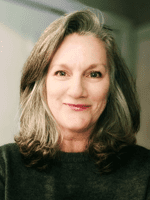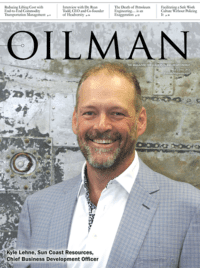Long fuel trucks with Sun Coast Resources’ blue, yellow and white logo emblazoned on the sides are a familiar sight to those of us in Texas driving along the I-10 corridor, as is the story of Sun Coast’s founding by 23-year-old Kathy Lehne – one of the unique entrepreneurial stories in the oil and gas industry with a female protagonist. Over the years, Sun Coast also has gained a certain amount of name recognition in places as far away as Puerto Rico for its disaster relief efforts. After winter storm Uri, the Arctic blast that hit in mid-February 2021, nearly shut down the state’s electricity grid, and at its peak left millions of people without electricity – and some without water – more Texans have come to see Sun Coast as a reliable resource for everything associated with petroleum supply, particularly during periods of peril.
As Kyle Lehne, Sun Coast’s chief business development officer (CBDO), explains, the company is constantly monitoring fuel markets and weather conditions, but “they’re [called] emergencies for a reason. Sometimes they can sneak up on you without much warning.” He says preparing for the winter storm was similar to anticipating a hurricane in the sense that he, Kathy and the Sun Coast team knew there were going to be issues with treacherous road conditions from ice and snow, as well as frozen water lines and burst pipes. Despite having some idea of what to expect, Lehne says, “You really don’t know the [extent of the] damage until the storm has passed.” Advance preparations include monitoring what type of emergency is anticipated, briefing drivers, loading fuel, gathering all necessary equipment and materials – depending on where the affected areas are – and then being ready to mobilize when a customer calls.
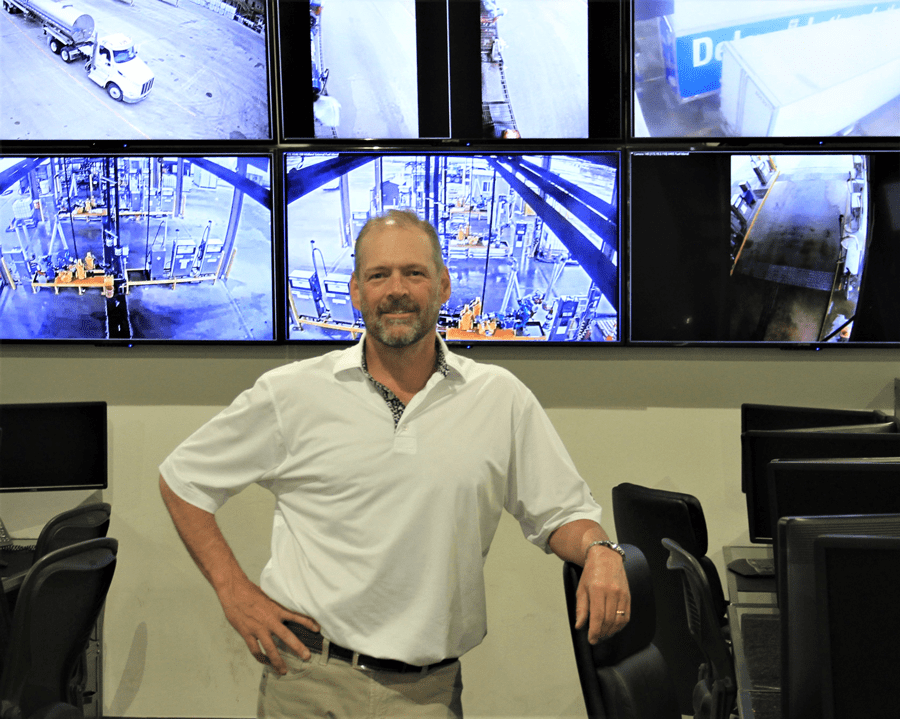
Sun Coast’s customers, which include federal agencies, city and county governments and private businesses in Texas and other states, may call Lehne and his team when there is an impending natural disaster and share their emergency preparation strategies (or “game plans,” as Lehne refers to them). Seventy-two hours before a storm is projected to strike, the team starts getting tanks and fuel ready, topping off generators and, depending on the severity of the storm, may position a fuel trailer at a customer’s facility or schedule daily deliveries until the power or water source has been restored.
While each situation is unique, Lehne says, “The bottom line is ensuring that our customers have the fuel they need to keep their businesses up and running, and to make sure their employees can get back and forth to work.” Sun Coast is typically thought of as a fuel transportation company, but it also hauls water, delivers propane and has a thriving lubricants partnership with Chevron. Currently, it also is partnering with others on transporting renewable fuels, as well compressed natural gas (CNG) and liquid natural gas (LNG).
Sun Coast’s “whatever it takes” philosophy contributes significantly to the company’s long and storied history within the oil and gas industry. Sun Coast was founded in 1985 by Kyle’s wife, Kathy, who at the age of 23 took her $2,000 of savings and started the business. Under her leadership, it has prospered to become one of the largest woman-owned businesses in Texas, employing a fleet of over 900 trucks, 850 professionals, with annual revenue totaling $640 million in 2020, despite the COVID-19 global pandemic.
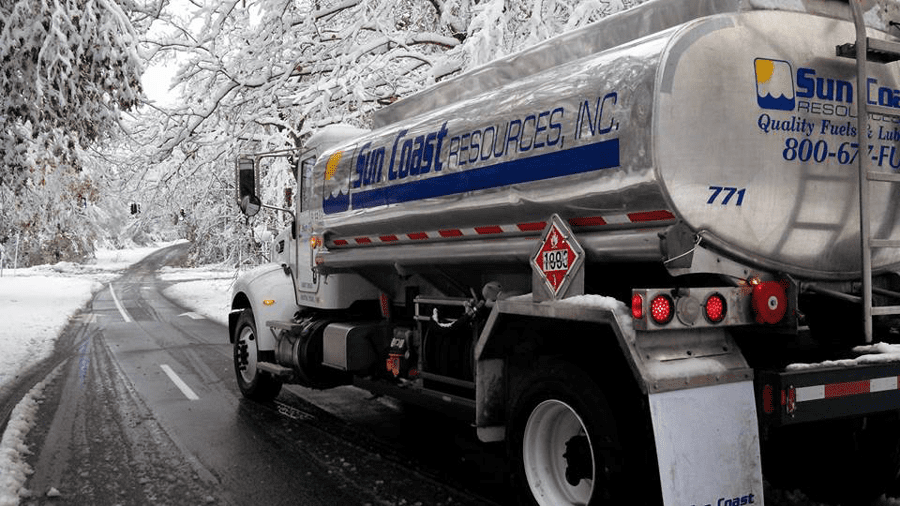
Part of Sun Coast’s success is Lehne’s insistence that you never tell a customer “no,” a belief that permeates the company’s culture from the top down. Potential employees are made aware of expectations during the interview and onboarding process. “If a hurricane comes in, they’re not going to be surprised if they’re asked to work extra-long hours.” By the same token, management has the flexibility to recognize when there is not an impending disaster looming on the horizon, employees should have the option of leaving early or taking personal time off because they will be expected to work later “when things are crazy,” as Lehne refers to hurricane season on the Gulf Coast.
He cites winter storm Uri as a perfect example. Weeks after the storm wreaked havoc in Texas, Lehne said certain key personnel were still working 15- and 16-hour days. “Of course, we reward and compensate people; they’re not doing volunteer work,” Lehne says, acknowledging the sacrifices that are sometimes required. And while the company’s everyday mission of delivering fuel to its customers is important, he says it is the emergency response aspect of the job where “we are making a difference in lives, and that feeling of really helping the community goes a long way with employees.”
Dealing with natural disasters and acts of God may not sound like the makings of a dream job, but for Lehne and the employees of Sun Coast responding to emergencies in places where power lines are down and water sources are contaminated, it is a worthy calling. He relays the story of an employee in the sales department, who was thinking about leaving to go back to school to earn a teaching certificate in order to make a difference in the lives of children.
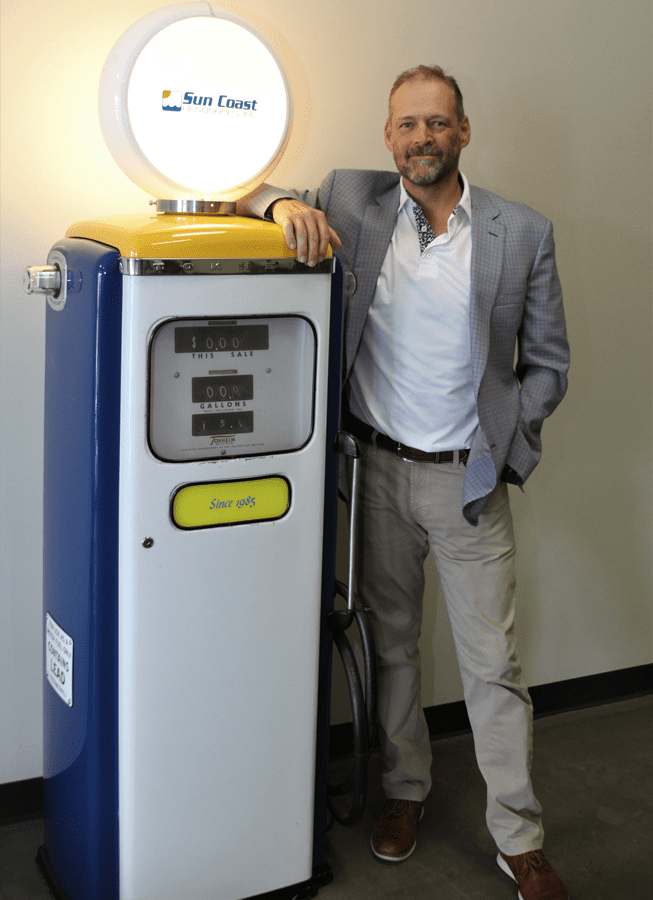
“What can you do to make more of a difference than supplying fuel?” Lehne asks. While acknowledging the importance of the work teachers do, he also points out that without fuel the school buses aren’t going to run, teachers aren’t going to work and kids aren’t going to school. “Nothing happens in this world without fuel, so while what we do may not be really glamorous to some people, it powers the world.”
Part of the devotion Sun Coast engenders among its employees is the fact that Lehne and his wife, Kathy, as CEO, are right there in the trenches with them. He is only half-joking when says he would prefer not to recount the particularly brutal 2017 storm season that started with Hurricane Harvey, a Category 4 Hurricane that devastated Houston, followed by Irma and culminated with Maria, both Category 5 storms. Kyle, Kathy, and their employees spent 60 straight days in the “storm room” at the Sun Coast campus, which has onsite apartments, because it is his belief, “When there’s an emergency, Kathy and I as leaders, should be here. I stay, she stays, and we just get it done.”
Sun Coast sent over 100 trucks to Puerto Rico, where Maria decimated the island, resulting in the deaths of nearly 3,000 people, making it the deadliest U.S.-based natural disaster in a century, and causing approximately $90 billion in damage. Once the trucks, drivers and supplies were in place, Kyle and Kathy made several trips to the island. As horrific as it was, Lehne says tornadoes cause a different kind of devastation.
Sun Coast was on the scene during the 2011 tornado season after an EF-5 tornado (the maximum ranking on the Enhanced Fujita Tornado Intensity Scale) ripped through Joplin, Missouri, killing approximately 160 people, injuring over 1,000, and leaving nearly $3 billion in damages in its wake.
“When you go to the site of a hurricane, and drive into the affected area, it gets progressively worse,” Lehne explains. “When you drive into an area that’s been hit by a tornado, it goes from normal to complete devastation in one block.”
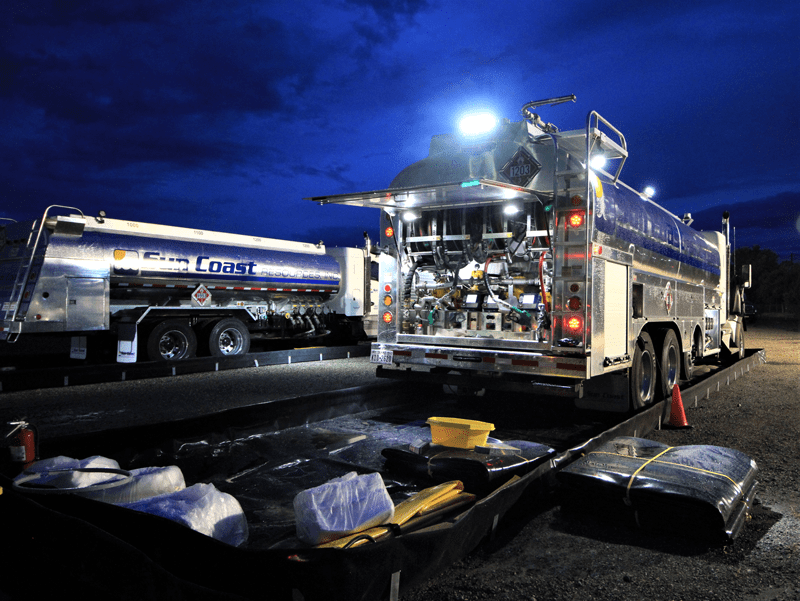
Lehne recalls standing outside of an elementary school where half the building was gone. As he peered inside, he saw a haunting sight: among the destroyed classrooms stood one room that was untouched. “It was like a picture. The books were still on the tops of the desks and you could see the pencils. None of the bookshelves were messed up. It was like you were looking through a window at what the classroom used to be like, but every room around it was completely destroyed,” he says quietly, still sounding somewhat unnerved by the surreal sight.
As heartbreaking as these scenes of devastation are, Lehne also says he has seen disasters bring out the best in humanity. Having delivered fuel and emergency supplies from New York, all the way down south to Brownsville, Texas, he says, “Across the board wherever you go everybody just steps up and helps out. Communities come together.”
Dealing with natural disasters and other emergencies requires leadership with an ability to think and react calmly and rationally during high stress situations. Lehne’s wife, Kathy, who plays non-professional high-stakes poker, as a way of unwinding, is especially cool under pressure.
“I got into the fuel industry because I married a lady who had a fuel company,” Lehne says laughing, although he has nothing but praise for his wife’s entrepreneurial skills and business acumen. Lehne, who has a degree in speech communications (“If it weren’t for accounting class, I probably would have some kind of economics or business degree”), was working for the Pappas’ Restaurant Companies when he met his wife and says, “Instead of delivering catfish, now I’m delivering diesel fuel!”
On a more serious note, he credits his wife with helping him make the switch from the hospitality industry to fuel distribution, calling her “a great mentor.” Being one of the few female CEOs in the petroleum industry makes her a great role model for women, although Lehne quickly interjects that she is a great role model “for everyone. I tell her I’ve learned more from her than anybody.” His pride in her capabilities building Sun Coast into the business it is today is evident when he calls her success story “absolutely incredible.”
While recognizing Kathy as an “impressive leader and a great CEO,” Kyle says he doesn’t know those qualities are because she’s a woman, but instead attributes them to “who she is.” He also believes she brings a different perspective to the role that has “benefitted the company and served our industry well.” One example he cites is, early on, as a working mother with small children, Kathy had nurseries set up on the Sun Coast facilities, a rarity back in the ‘90s and still not commonplace even today. “I think Sun Coast was probably one of the pioneers in that area even if it wasn’t on purpose [but out of necessity].”
Not only have the Lehne’s three children – Karly, Kelsy and Kash – observed first-hand their mother successfully running a company that is now one of the largest women-owned businesses in Texas, but they have seen their parents work together as a team, which may be one of the reasons two of three (so far) have been inspired to join the family business, although Lehne is quick to say, “They don’t get any special treatment because they’re Kyle and Kathy’s kids.”
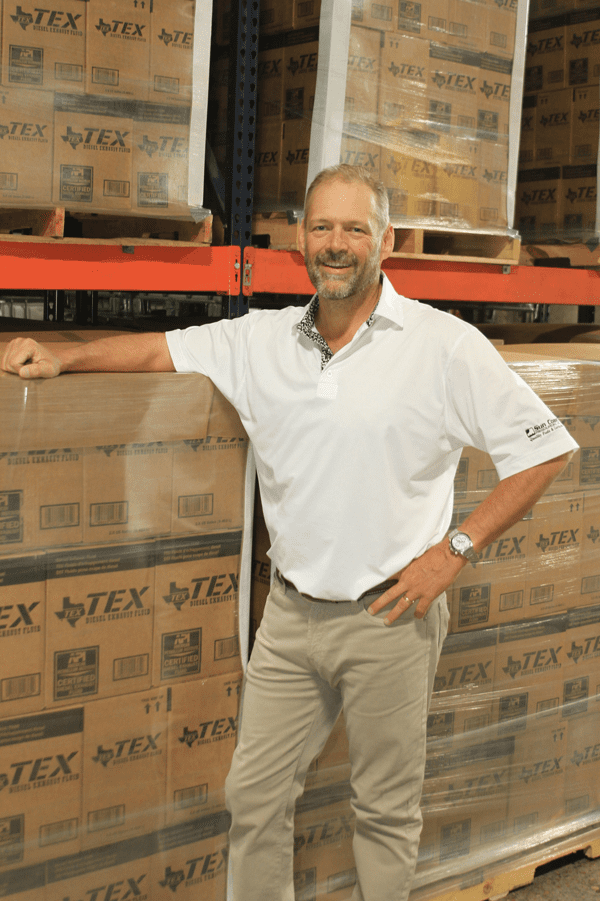
Their older daughter, Karly, who had entertained the idea of going to law school and had gone so far as to take the LSAT, has been rotating through different departments in the company every six months in order to learn all facets of the business, including recruiting and billing, and is currently working in Sun Coast’s supply department. Their other daughter, Kelsy, thought about becoming a teacher after graduating from college, but also found herself at Sun Coast, and describes her role as “improving efficiencies,” which entails developing ways to help drivers do their jobs more efficiently. Lehne says, “As luck would have it, they do a great job!”
Son, Kash Lehne, pitched in during the winter storm, making fuel deliveries, as well as delivering face masks and antibacterial wipes to customers. A senior in high school, Kash aspires to be a professional golfer, and has been accepted at Texas A&M University, where he intends to study ranch management.
Describing his son as “very highly motivated,” Lehne said he wouldn’t be surprised if he goes off and forges his own path to avoid being in his parent’s shadow, but says his son can always come in and “we can be in [his] shadow. He may even be able to help Sun Coast go to an even higher level.”
With a new generation comes fresh ideas and innovative ways of thinking which may mean adding renewables to the mix at some point. As a fuel distributor, Lehne points out that Sun Coast isn’t creating or developing products, but the company partners with producers and suppliers to deliver the products its customers require, to ensure they have what Lehne calls the “energy source of their choice.”
While Lehne believes it will still be quite some time before heavy equipment and machinery will run on alternative fuels to a significant degree, he says it would be “shortsighted to think the industry is not changing. There will be a significant shift from today’s fuels to renewables in the future, so Sun Coast must be ready to provide whatever our customers need to keep them running at peak performance, no matter what.”
Rebecca Ponton is the editor in chief at U.S. Energy Media and author of Breaking the Gas Ceiling: Women in the Offshore Oil and Gas Industry. She is the publisher of Books & Recovery digital magazine.




